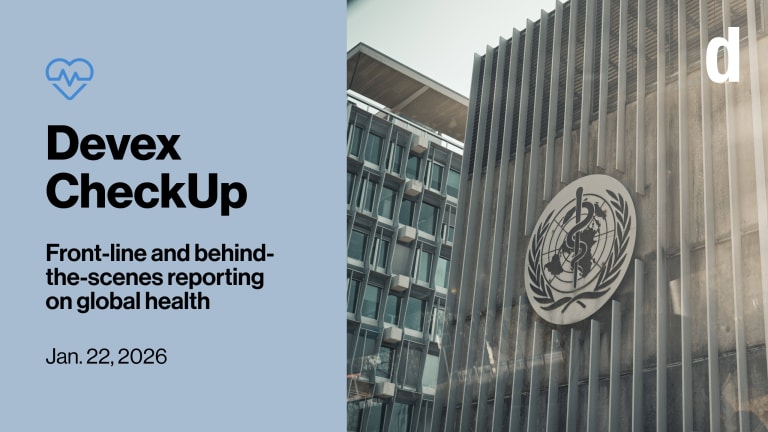
LONDON — Early funding pledges have been announced in response to a new Ebola outbreak in the Democratic Republic of the Congo, days after a team of experts from the World Health Organization arrived on the scene.
The United Kingdom government pledged 1 million British pounds ($1,36 million) on Thursday through the Joint Initiative on Epidemic Preparedness, with the Wellcome Trust committing a further 2 million pounds to support rapid response to the outbreak. The funds will be made available to the DRC government and WHO for research to support the operational response, according to a statement from the Wellcome Trust.
WHO released $1 million from its Contingency Fund for Emergencies to support response over the next three months, with the goal of preventing the disease from spreading to surrounding areas.
The government of DRC confirmed the outbreak on Tuesday in the northwest region of Bikoro. It announced the first confirmed death on Thursday, and said at least 11 other people were infected, including three medical staff. However, WHO Deputy Director-General Peter Salama tweeted Thursday that the number of “suspected, probable and confirmed cases” has risen to 32.
On Wednesday, the Africa Centres for Disease Control and Prevention, which was launched in January 2016 partly as a response to the West Africa Ebola outbreak, activated its Emergency Operation Center. It also mobilized its epidemic response team, members of which have experience responding to previous Ebola outbreaks, and set aside an initial $250,000 for response activities.
U.N. Emergency Relief Coordinator Mark Lowcock also announced $2 million from the U.N. Central Emergency Relief Fund to kickstart the response and support the DRC government, including through surveillance, treatment, community mobilization and sensitization, safe and dignified burials, and support to logistics services.
“We know that coordinated early response will be critical to containing this outbreak,” Lowcock said in a statement. “This CERF allocation will help our humanitarian partners to deliver vital services to people in affected communities and to stop the spread of the virus.”
WHO said Tuesday a multidisciplinary team of experts, including those from Médecins Sans Frontières and DRC’s Provincial Health Division, were on their way to Bikoro to help coordinate the response. The United Nations’ health agency said it was working closely with the government “to rapidly scale up its operations and mobilize health partners using the model of a successful response to a similar Ebola outbreak last year.”
DRC is one of the most linguistically diverse countries in the world, which presents a complex communication challenge for health interventions. More than 40 languages are spoken within 300 kilometers of the town of Bikoro alone. To aid the response, Translators Without Borders has created a crisis language map for Bikoro, in the Équateur Province of DRC.
On Tuesday, the same day the outbreak was confirmed, the U.S. Office for Budget Management submitted a request to rescind $252 million in Ebola-related funding, originally allocated for the 2015 Ebola response in West Africa. In an email to the Daily Beast, a White House official said “The Administration understands the risks posed by infectious disease threats such as Ebola, and that quick action is necessary to stop an outbreak at its source,” but added it does “not believe the funds proposed for rescission are necessary to respond to the DRC outbreak, due to the increased capabilities of the Congolese government and quick mobilization by partners in country.”
The current Ebola outbreak is the country’s ninth since the 1970s. Officials in neighboring countries said they have begun implementing measures to prevent it spreading, including additional screening measures at borders.
The major outbreak of the disease in West Africa, which ended in 2016, took several billion dollars to finally contain. It claimed more than 11,000 lives, mostly in Guinea, Liberia, and Sierra Leone.









